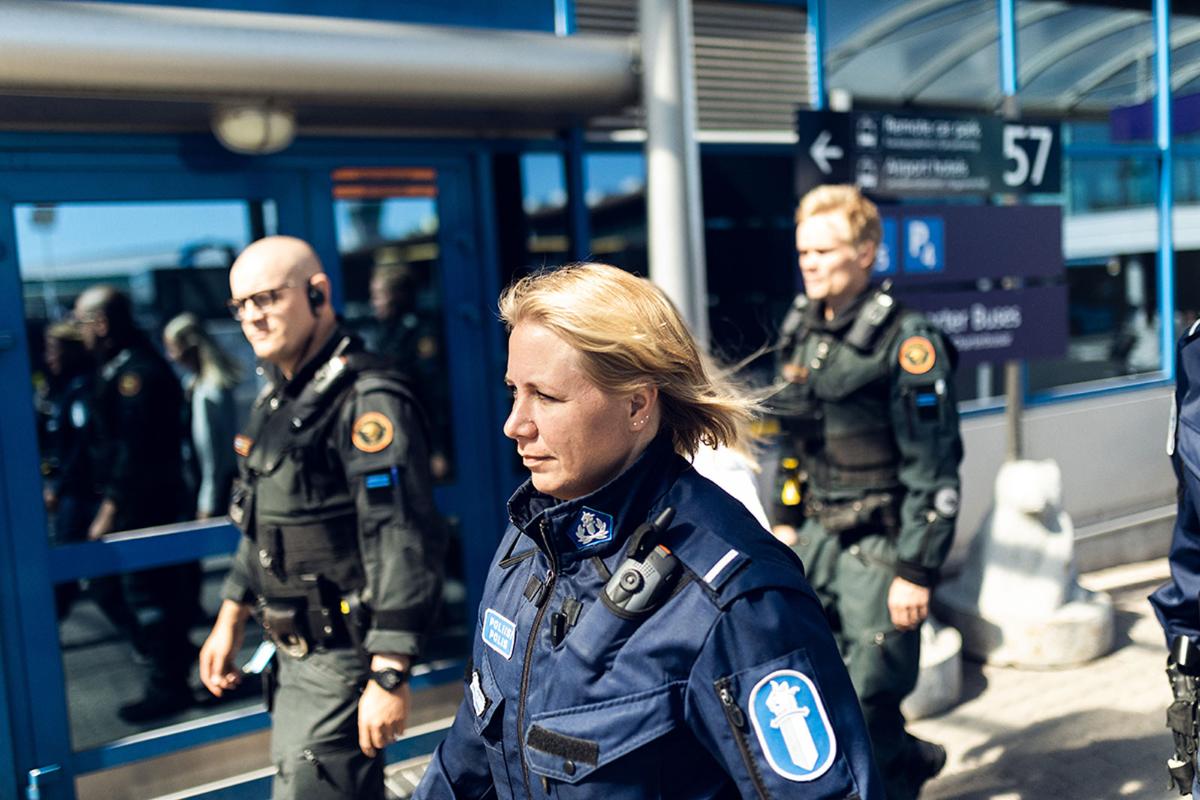EU Home Affairs Funds – a little-known but important source of financial assistance

Finland’s 25-year membership of the European Union has given the small country a lot: we are part of the Schengen free movement area, the union’s internal market and the common financial framework, which covers both agricultural support and efforts to improve external border control. EU funding also helps Finland to prepare and respond to crises. The EU is currently in the process of drafting its multiannual financial framework for the years 2021–2027.
The financial framework divides EU assistance between multiple instruments, including home affairs funding. Home affairs funding provides financial assistance towards external border control, internal security, the EU’s civil protection mechanism and migration control. The significance of home affairs funding and the amounts of assistance available have increased as the external environment has evolved over the programming periods, and the same trend is expected to continue.
The EU Home Affairs Funds primarily provide assistance to government agencies, and they are not yet as well known as other instruments such as the EU Structural Funds, which help to repair roads and nature trails, for example, and are therefore visible to the general public. This does not, however, mean that assistance from the EU Home Affairs Funds could not be used to bring about tangible improvements in society.
The Funds have been used, for example, to train more than 800 pre-trial investigation officers to better identify warning signs of human trafficking, support victims of crime and help to prevent radicalisation. The government agencies responsible for internal security, such as the Police and the Finnish Border Guard, play a key role in ensuring the public’s safety, and these authorities have benefited, for example, from assistance towards the purchase of new boats, patrol cars, four-wheelers and other equipment.
Information system development and immigration control
The functioning of society relies heavily on information systems, and a sizeable amount of financial assistance towards information system development comes from the EU. One of the most important databases from the perspective of internal security is the centralised Schengen Information System (SIS II), which helps the law enforcement and administrative authorities of the Member States to better protect the Schengen area, combat crime, locate missing persons and exchange intelligence with each other.
Another important system is the Visa Information System (VIS), which enables consulates and other competent authorities of the Member States to search for information about visa applications and decisions.
The EU Home Affairs Funds also play a big role in ensuring the adequacy of immigration, asylum and integration resources. A lot has been invested in the performance of the asylum and reception system in recent years through the Finnish Immigration Service’s EU-co-financed projects. Assistance from the EU also helps the processes associated with work-based immigration and the integration of refugees accepted by Finland through the resettlement programme as well as other immigrants to run more smoothly.
Third-sector operators and organisations specialising in services for immigrants play an important part in the integration process in particular, and training providers also benefit substantially from the assistance. The funding can also be used to help refused asylum seekers to return to third countries.
Finland is currently involved in receiving unaccompanied minors from refugee camps in the Mediterranean region, and the costs are being covered by the EU Home Affairs Funds.
Coronavirus pandemic calls for concerted action from the EU
The forest fires and natural disasters that have ravaged Europe in recent years have highlighted the need for an EU-level emergency response mechanism. Individual countries can use the EU’s civil protection mechanism to request assistance from the union if their national resources are inadequate to overcome a serious accident or crisis.
The EU’s civil protection mechanism played an important part in coordinating repatriation flights for EU citizens amid the coronavirus pandemic in the spring. The coronavirus outbreak has also served as yet another wake-up call for the EU to pool its resources.
New programming period around the corner
EU leaders reached an agreement on the budget for the 2021–2027 programming period in July. Germany, which currently holds the presidency of the EU, is now pushing hard to get the new EU programmes ready.
It will be exciting to see what happens this autumn and how quickly the Member States are able to start implementing the new programmes and applicants from government agencies to private citizens to resume their efforts to improve society with the EU’s financial assistance.
The authors are government officials in charge of the administration of the EU Home Affairs Funds in Finland. The text has been published at the Europe Forum Turku as a part of the virtual Europe Market.



